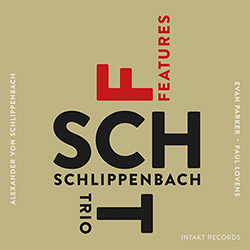
The long-standing Schlippenbach Trio with Evan Parker on saxophone and Paul Lovens on drums presents 15 concise "Features", improvisations of great depth and diversity, from the beautifully stark solo piano that opens the album to intense collective interactions, avoiding excess in deference to the profound expression of an inspiring group chemistry.
Out of Stock
Quantity in Basket: None
Log In to use our Wish List
Shipping Weight: 5.00 units
Sample The Album:
Alexander von Schlippenbach-piano
Evan Parker-saxophones
Paul Lovens-drums
Click an artist name above to see in-stock items for that artist.
UPC: 7640120192501
Label: Intakt
Catalog ID: ITK250.2
Squidco Product Code: 24148
Format: CD
Condition: New
Released: 2015
Country: Switzerland
Packaging: Jewel Case
Recorded for Radio SRF and Intakt Records at Radiostudio Zurich, December 11th, and 12th, 2013, by Martin Pearson.
"The Schlippenbach Trio has worked together as a unit for around forty-five (!) years.Their magic chemistry is founded on intuitive listening and interaction - the ability to respond in an instant - and on the match between their characters, each adding to the whole as well as challenging each other - a stroke of fortune. The spectrum of performances on Features covers a range from furore to elegy. It extends from energetic, forward-thrusting pieces via cool, calm, ambling passages and ballad moods to submersion in sound, in silence."-Bert Noglik, liner notes
"In a change of pace from their previous outing—the superb long form concert recording Bauhaus Dessau (Intakt, 2010) -the longstanding Schlippenbach Trio has created a program of 15 concise improvisations, captured during a two day stopover in Zurich during their customary winter tour schedule. Such practice stands as far from unprecedented in the unit's 43 year history. Inevitably they have mellowed since their early days (after all both pianist Alexander von Schlippenbach and saxophonist Evan Parker are over 70 now) and the palette they choose to work from appears more limited compared to say Pakistani Pomade (FMP, 1973). But that's because they have developed a collective language which allows them to say what they need and not a jot more.
Brevity precludes neither intensity or diversity. The energy hasn't gone, but it has been largely replaced by penetrating conversation. On some cuts ("Feature 3," "Feature 4") they touch on no less a number of moods than might be encountered in a more protracted performance. Of course they may not be sustained to the same degree, but there is the same level of alchemy on display via individual virtuosity placed entirely at the service of near telepathic democratic interchange. Conversely sometimes they do sustain a feeling as on the dreamy "Feature 7." Even though Schlippenbach often leads, the ensuing pieces advance as a group discussion through a variety of approaches.
At over eight minutes "Feature 10" is the longest track, and also the one which has the most distinctive structure. A squally beginning gives way to a rambunctious tenor saxophone/ drum duet which proceeds in synchronous eruptions, as Paul Lovens pushes Parker with a rumbling tattoo. Schlippenbach rejoins, then continues in percussive dialogue, with Lovens drumming now more sparse and tappy, before a fiery close in which Parker spits staccato gobbets. As a package the disc provides the opportunity to put the threesome's workings under the microscope and may particularly appeal to those who prefer to digest their improv in short elegant bursts rather than dig in for an extended session."-John Sharpe, All About Jazz
Get additional information at All About Jazz
Artist Biographies
• Show Bio for Alexander von Schlippenbach "One of Europe's premier free jazz bandleaders, pianist Alexander von Schlippenbach's music mixes free and contemporary classical elements, with his slashing solos often the link between the two in his compositions. Schlippenbach formed The Globe Unity Orchestra in 1966 to perform the piece"Globe Unity, which had been commissioned by the Berliner Jazztage. He remained involved with the orchestra into the '80s. Schlippenbach began taking lessons at eight, and studied at the Staatliche Hochschule for Musik in Cologne with composers Bernd Alois Zimmermann and Rudolf Petzold. He played with Gunther Hampel in 1963, and was in Manfred Schoof's quintet from 1964 to 1967.Schlippenbach began heading various bands after 1967, among them 1970 trio with Evan Parker and Paul Lovens and a duo with Sven-Ake Johansson which they co-formed in 1976. Schlippenbach has also given many solos performances. In the late '80s, he formed the Berlin Contemporary Jazz Orchestra,which has featured a number ofesteemed European avant-garde jazz musicians including Evan Parker, Paul Lovens, KennyWheeler, Misha Mengelberg and Aki Takase. During the 90`s Duo work with Tony Oxley, Sam Rivers and Aki Takase. 1999 started performance and radiorecording of Thelonius Monks complete works, (all the compositions) with Rudi Mahall and his group "Die Enttäuschung"." ^ Hide Bio for Alexander von Schlippenbach • Show Bio for Evan Parker "Evan Parker was born in Bristol in 1944 and began to play the saxophone at the age of 14. Initially he played alto and was an admirer of Paul Desmond; by 1960 he had switched to tenor and soprano, following the example of John Coltrane, a major influence who, he would later say, determined "my choice of everything". In 1962 he went to Birmingham University to study botany but a trip to New York, where he heard the Cecil Taylor trio (with Jimmy Lyons and Sunny Murray), prompted a change of mind. What he heard was "music of a strength and intensity to mark me for life ... l came back with my academic ambitions in tatters and a desperate dream of a life playing that kind of music - 'free jazz' they called it then." Parker stayed in Birmingham for a time, often playing with pianist Howard Riley. In 1966 he moved to London, became a frequent visitor to the Little Theatre Club, centre of the city's emerging free jazz scene, and was soon invited by drummer John Stevens to join the innovative Spontaneous Music Ensemble which was experimenting with new kinds of group improvisation. Parker's first issued recording was SME's 1968 Karyobin, with a line-up of Parker, Stevens, Derek Bailey, Dave Holland and Kenny Wheeler. Parker remained in SME through various fluctuating line-ups - at one point it comprised a duo of Stevens and himself - but the late 1960s also saw him involved in a number of other fruitful associations. He began a long-standing partnership with guitarist Bailey, with whom he formed the Music Improvisation Company and, in 1970, co-founded Incus Records. (Tony Oxley, in whose sextet Parker was then playing, was a third co-founder; Parker left Incus in the mid-1980s.) Another important connection was with the bassist Peter Kowald who introduced Parker to the German free jazz scene. This led to him playing on Peter Brötzmann's 1968 Machine Gun, Manfred Schoof's 1969 European Echoes and, in 1970, joining pianist Alex von Schlippenbach and percussionist Paul Lovens in the former's trio, of which he is still a member: their recordings include Pakistani Pomade, Three Nails Left, Detto Fra Di Noi, Elf Bagatellen and Physics. Parker pursued other European links, too, playing in the Pierre Favre Quartet (with Kowald and Swiss pianist Irene Schweizer) and in the Dutch Instant Composers Pool of Misha Mengelberg and Han Bennink. The different approaches to free jazz he encountered proved both a challenging and a rewarding experience. He later recalled that the German musicians favoured a "robust, energy-based thing, not to do with delicacy or detailed listening but to do with a kind of spirit-raising, a shamanistic intensity. And l had to find a way of surviving in the heat of that atmosphere ... But after a while those contexts became more interchangeable and more people were involved in the interactions, so all kinds of hybrid musics came out, all kinds of combinations of styles." A vital catalyst for these interactions were the large ensembles in which Parker participated in the 1970s: Schlippenbach's Globe Unity Orchestra, Chris McGregor's Brotherhood of Breath, Barry Guy's London Jazz Composers Orchestra (LJCO) and occasional big bands led by Kenny Wheeler. In the late 70s Parker also worked for a time in Wheeler's small group, recording Around Six and, in 1980, he formed his own trio with Guy and LJCO percussionist Paul Lytton (with whom he had already been working in a duo for nearly a decade). This group, together with the Schlippenbach trio, remains one of Parker's top musical priorities: their recordings include Tracks, Atlanta, Imaginary Values, Breaths and Heartbeats, The Redwood Sessions and At the Vortex. In 1980, Parker directed an Improvisers Symposium in Pisa and, in 1981, he organised a special project at London's Actual Festival. By the end of the 1980s he had played in most European countries and had made various tours to the USA, Canada, Australia, New Zealand and Japan. ln 1990, following the death of Chris McGregor, he was instrumental in organising various tributes to the pianist and his fellow Blue Notes; these included two discs by the Dedication Orchestra, Spirits Rejoice and lxesa. Though he has worked extensively in both large and small ensembles, Parker is perhaps best known for his solo soprano saxophone music, a singular body of work that in recent years has centred around his continuing exploration of techniques such as circular breathing, split tonguing, overblowing, multiphonics and cross-pattern fingering. These are technical devices, yet Parker's use of them is, he says, less analytical than intuitive; he has likened performing his solo work to entering a kind of trance-state. The resulting music is certainly hypnotic, an uninterrupted flow of snaky, densely-textured sound that Parker has described as "the illusion of polyphony". Many listeners have indeed found it hard to credit that one man can create such intricate, complex music in real time. Parker's first solo recordings, made in 1974, were reissued on the Saxophone Solos CD in 1995; more recent examples are Conic Sections and Process and Reality, on the latter of which he does, for the first time, experiment with multi-tracking. Heard alone on stage, few would disagree with writer Steve Lake that "There is, still, nothing else in music - jazz or otherwise - that remotely resembles an Evan Parker solo concert." While free improvisation has been Parker's main area of activity over the last three decades, he has also found time for other musical pursuits: he has played in 'popular' contexts with Annette Peacock, Scott Walker and the Charlie Watts big band; he has performed notated pieces by Gavin Bryars, Michael Nyman and Frederic Rzewski; he has written knowledgeably about various ethnic musics in Resonance magazine. A relatively new field of interest for Parker is improvising with live electronics, a dialogue he first documented on the 1990 Hall of Mirrors CD with Walter Prati. Later experiments with electronics in the context of larger ensembles have included the Synergetics - Phonomanie III project at Ullrichsberg in 1993 and concerts by the new EP2 (Evan Parker Electronic Project) in Berlin, Nancy and at the 1995 Stockholm Electronic Music Festival where Parker's regular trio improvised with real-time electronics processed by Prati, Marco Vecchi and Phillip Wachsmann. "Each of the acoustic instrumentalists has an electronic 'shadow' who tracks him and feeds a modified version of his output back to the real-time flow of the music." The late 80s and 90s brought Parker the chance to play with some of his early heroes. He worked with Cecil Taylor in small and large groups, played with Coltrane percussionist Rashied Ali, recorded with Paul Bley: he also played a solo set as support to Ornette Coleman when Skies of America received its UK premiere in 1988. The same period found Parker renewing his acquaintance with American colleagues such as Anthony Braxton, Steve Lacy and George Lewis, with all of whom he had played in the 1970s (often in the context of London's Company festivals). His 1993 duo concert with Braxton moved John Fordham in The Guardian to raptures over "saxophone improvisation of an intensity, virtuosity, drama and balance to tax the memory for comparison". Parker's 50th birthday in 1994 brought celebratory concerts in several cities, including London, New York and Chicago. The London performance, featuring the Parker and Schlippenbach trios, was issued on a highly-acclaimed two-CD set, while participants at the American concerts included various old friends as well as more recent collaborators in Borah Bergman and Joe Lovano. The NYC radio station WKCR marked the occasion by playing five days of Parker recordings. 1994 also saw the publication of the Evan Parker Discography, compiled by ltalian writer Francesco Martinelli, plus chapters on Parker in books on contemporary musics by John Corbett and Graham Lock. Parker's future plans involve exploring further possibilities in electronics and the development of his solo music. They also depend to a large degree on continuity of the trios, of the large ensembles, of his more occasional yet still long-standing associations with that pool of musicians to whose work he remains attracted. This attraction, he explained to Coda's Laurence Svirchev, is attributable to "the personal quality of an individual voice". The players to whom he is drawn "have a language which is coherent, that is, you know who the participants are. At the same time, their language is flexible enough that they can make sense of playing with each other ... l like people who can do that, who have an intensity of purpose." " ^ Hide Bio for Evan Parker • Show Bio for Paul Lovens "Born in Aachen, Germany, 6 June 1949; Drums, percussion, musical saw, etc. Paul Lovens played the drums as a child. Self-taught, from the age of 14 he played in groups of various jazz styles and popular musics and from 1969 has worked almost exclusively as an improvisor on individually selected instruments. He has worked internationally with most of the leading musicians in free jazz and free improvisation, among whom have included the Globe Unity Orchestra, the Berlin Contemporary Jazz Orchestra, the Schlippenbach trio, Quintet Moderne, Company, and a duo with Paul Lytton. He has undertaken concert tours in more than 40 countries, is a founder member of a musician's cooperative and has produced recordings for his own label, Po Torch Records since 1976. He has worked with painter Herbert Bardenheuer. Despite very rare solo performances, and although giving occasional concerts with ad-hoc groups and an involvement in projects with film, dance and actors, Paul Lovens' main interest and work is musical improvisation in fixed small groups. In the mid-1990s these small groups numbered around 16, of which a few were part of a special selection, called 'vermögen'. Paul Lovens somehow epitomises the free drummer/percussionist who is not there to lay down the beat and kick everyone else into action but to listen, colour, contribute, guide, and occasionally direct, the overall cooperative sound. In concert one cannot fail to be moved by his intensity and concentration and there is an overiding feeling that even the most random events are somehow planned in time. In this respect, there is a nice irony that on the Nothing to read CD with Mats Gustafsson, Lovens describes his kit as consisting of 'selected and unselected drums and cymbals'. Miking seems to be a problem at times with some recordings giving him undue prominence and others insufficient. Good recordings are Elf bagatellen, Nothing to read, Pakistani pomade, and ,stranger than love." ^ Hide Bio for Paul Lovens
4/9/2025
Have a better biography or biography source? Please Contact Us so that we can update this biography.
4/9/2025
Have a better biography or biography source? Please Contact Us so that we can update this biography.
4/9/2025
Have a better biography or biography source? Please Contact Us so that we can update this biography.
Track Listing:
1. Feature 1 2:10
2. Feature 2 3:26
3. Feature 3 4:00
4. Feature 4 5:38
5. Feature 5 3:15
6. Feature 6 4:31
7. Feature 7 5:14
8. Feature 8 3:29
9. Feature 9 2:23
10. Feature 10 8:19
11. Feature 11 4:16
12. Feature 12 2:43
13. Feature 13 5:21
14. Feature 14 3:59
15. Feature 15 2:57
Improvised Music
Jazz
Free Improvisation
European Improvisation and Experimental Forms
London & UK Improv & Related Scenes
Trio Recordings
Parker, Evan
Intakt
Staff Picks & Recommended Items
Search for other titles on the label:
Intakt.


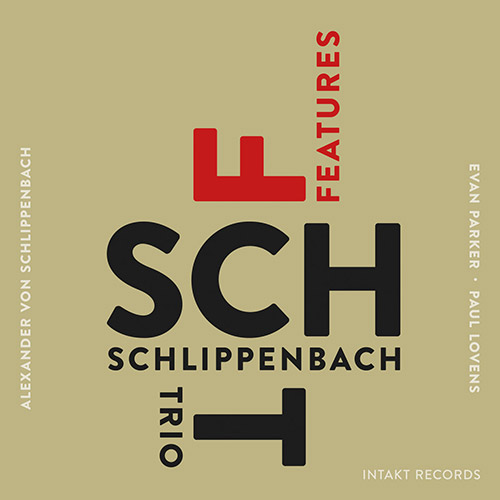
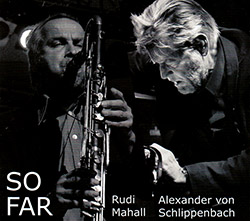
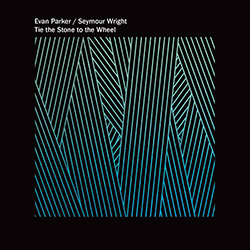
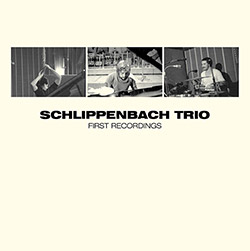

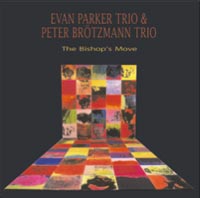



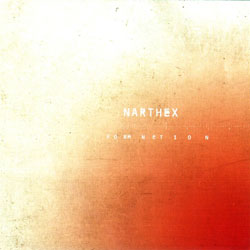
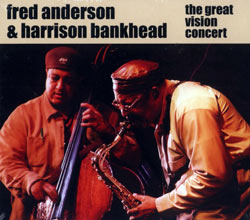
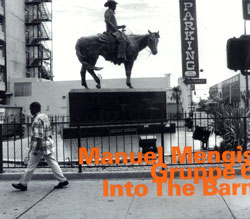

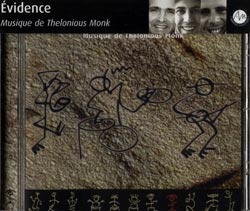




![111 (Michelle / Villamil): Live at Opus 40 [CASSETTE]](https://www.teuthida.com/productImages/misc4/35986.jpg)
![del Pino, Francisco / Charlotte Mundy: The Sea [CASSETTE]](https://www.teuthida.com/productImages/misc4/35987.jpg)

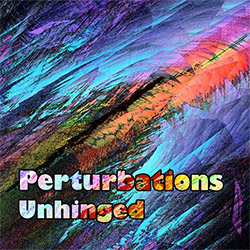

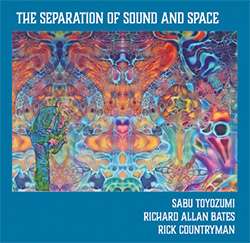


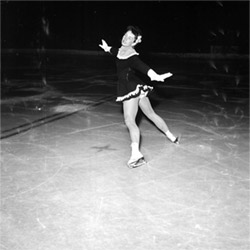
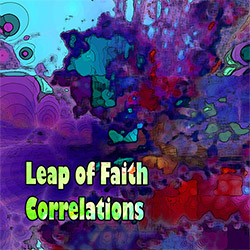

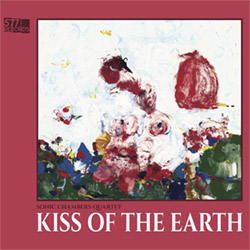

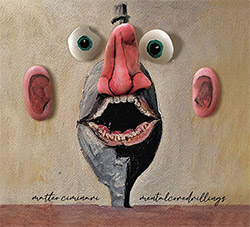

![Niblock, Phill / Anna Clementi / Thomas Stern: Zound Delta 2 [VINYL]](https://www.teuthida.com/productImages/misc4/34623.jpg)
![Yoko, Ono / The Great Learning Orchestra: Selected Recordings From Grapefruit [2 CDs]](https://www.teuthida.com/productImages/misc4/35841.jpg)

![Brotzmann, Peter / John Edwards / Steve Noble / Jason Adasiewicz: The Quartet [2 CDs]](https://www.teuthida.com/productImages/misc4/35975.jpg)
![Brotzmann, Peter / John Edwards / Steve Noble / Jason Adasiewicz: The Quartet [VINYL 2 LPs]](https://www.teuthida.com/productImages/misc4/35976.jpg)
![Thomas, Pat: The Solar Model of Ibn-Al Shatir [VINYL]](https://www.teuthida.com/productImages/misc4/36044.jpg)
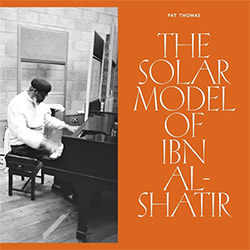



![Rodrigues, Ernesto / Nuno Torres / Guilherme Rodrigues: Whispers In The Moonlight - In Seven Movements [2CDs]](https://www.teuthida.com/productImages/misc4/35765.jpg)



![Cocks, Laura: FATHM [VINYL]](https://www.teuthida.com/productImages/misc4/36055.jpg)













![Schindler, Udo / Sandy Ewen / Damon Smith: Munich Sound Studies Vols. 4, 5 & 6 [3 CDs]](https://www.teuthida.com/productImages/misc4/35966.jpg)
![Turbulence Orchestra & Sub-Units: Smear Out the Difficulties (Double Live) [2 CDs]](https://www.teuthida.com/productImages/misc4/36048.jpg)

![Myers, David Lee : Tin Drop Tear [BOOK w/ DOWNLOAD]](https://www.teuthida.com/productImages/misc4/36030.jpg)

![Ackerley / Prymek / Turner: All Hope With Sleeping Minds [CASSETTE]](https://www.teuthida.com/productImages/misc4/35950.jpg)








![Olencki, Weston : Pearls Ground Down To Powder [VINYL]](https://www.teuthida.com/productImages/misc4/35956.jpg)
![Myers, David Lee: Oculus [2CDs]](https://www.teuthida.com/productImages/misc4/35857.jpg)


![dustsceawung: dustsceawung [CASSETTE w/ Download]](https://www.teuthida.com/productImages/misc4/35753.jpg)




![Halls of the Machine: Atmospheres For Lovers And Sleepers [CASSETTE w/ DOWNLOAD]](https://www.teuthida.com/productImages/misc4/35806.jpg)











![Zorn, John / JACK Quartet: The Complete String Quartets [2 CDs]](https://www.teuthida.com/productImages/misc4/35609.jpg)

![Lonsdale, Eden: Dawnings [2 CDs]](https://www.teuthida.com/productImages/misc4/35480.jpg)







![Sanna, Claudio: Compositori Sardi Contemporanei II [2 CDs]](https://www.teuthida.com/productImages/misc4/35317.jpg)







![Zurria, Manuel: Fame di Vento [3 CDs]](https://www.teuthida.com/productImages/misc4/35167.jpg)

![Electric Bird Noise / Derek Roddy: 8-10-22 [CD EP]](https://www.teuthida.com/productImages/misc4/35970.jpg)








![Elephant9 : Mythical River [VINYL]](https://www.teuthida.com/productImages/misc4/34624.jpg)



![Elephant9 with Terje Rypdal: Catching Fire [VINYL 2 LPs]](https://www.teuthida.com/productImages/misc4/35355.jpg)
![Deerlady (Obomsawin, Mali / Magdalena Abrego): Greatest Hits [VINYL]](https://www.teuthida.com/productImages/misc4/34876.jpg)







![Surplus 1980: Illusion of Consistency [CD]](https://www.teuthida.com/productImages/misc4/35069.jpg)
![Staiano, Moe: Away Towards the Light [VINYL + DOWNLOAD]](https://www.teuthida.com/productImages/misc4/35037.jpg)



![Caveira (Gomes / Sousa / Abras / Ferrandini): Ficar Vivo [VINYL]](https://www.teuthida.com/productImages/misc4/34643.jpg)
![Coley, Byron: Dating Tips for Touring Bands [VINYL]](https://www.teuthida.com/productImages/misc4/17906.jpg)

![Lost Kisses: My Life is Sad & Funny [DVD]](https://www.teuthida.com/productImages/misc4/lostKissesDVD.jpg)